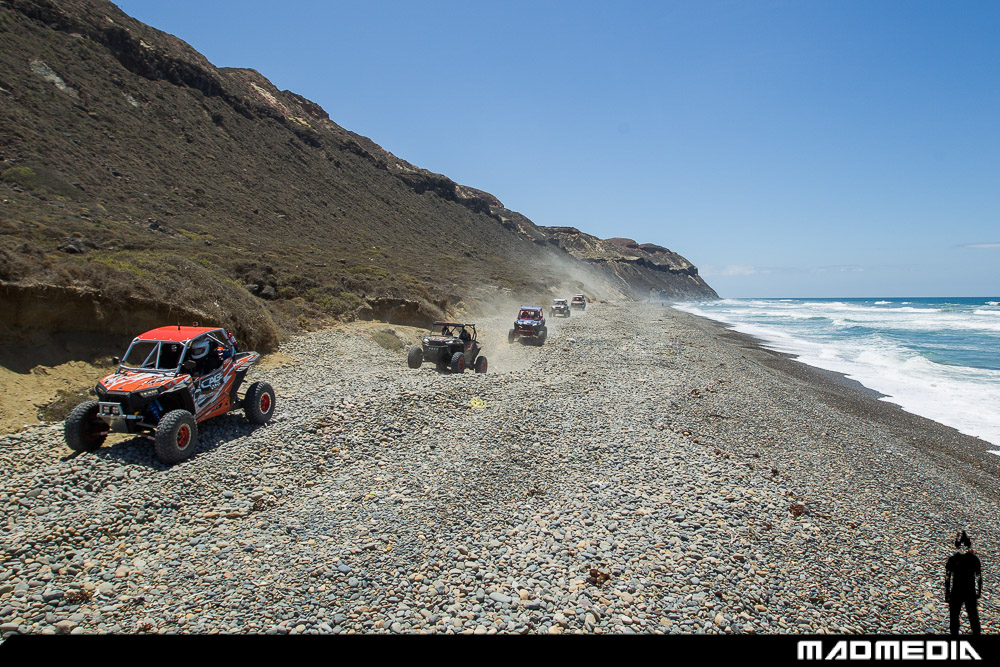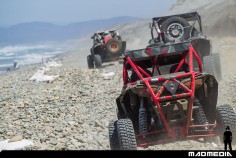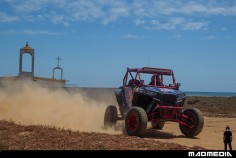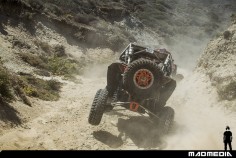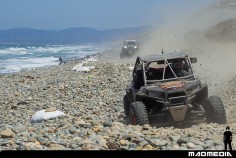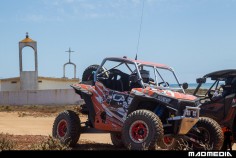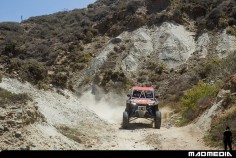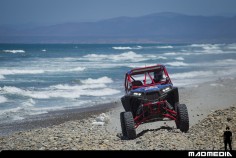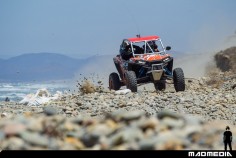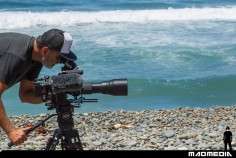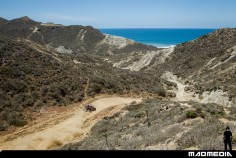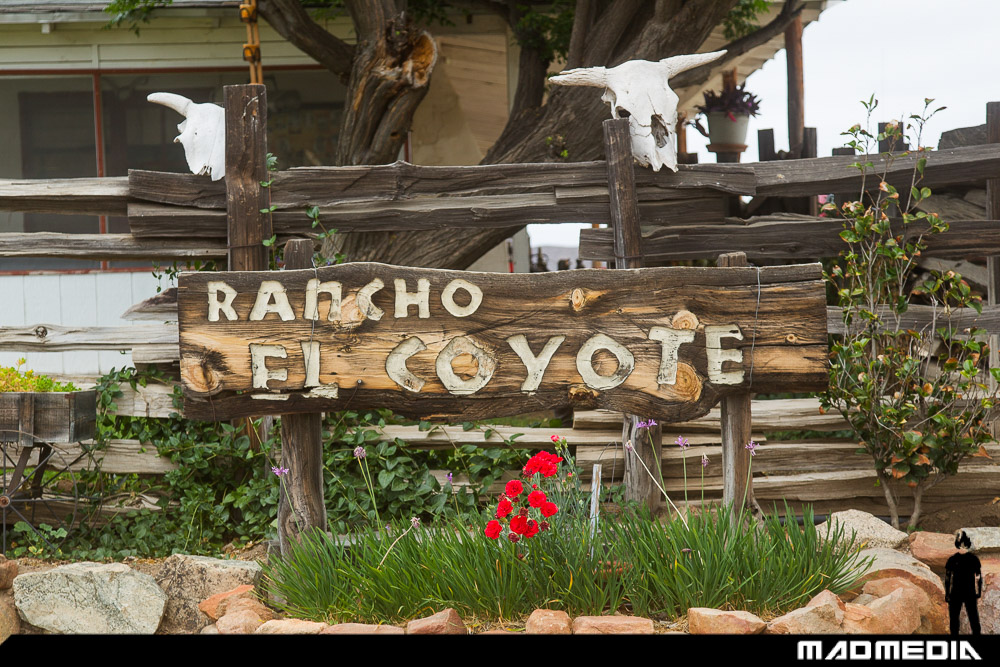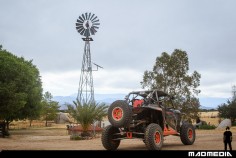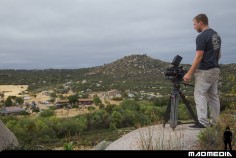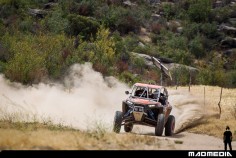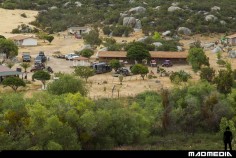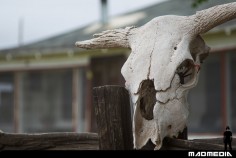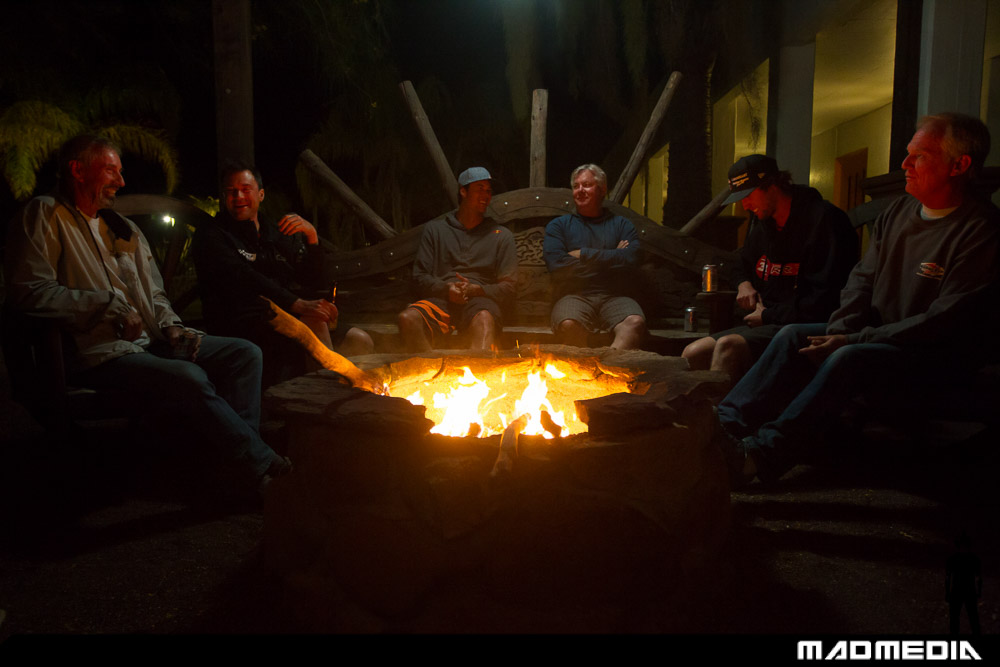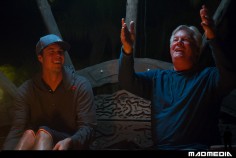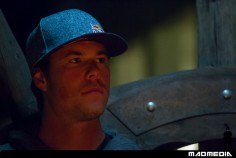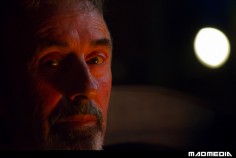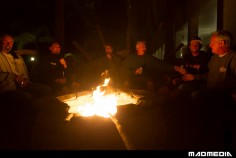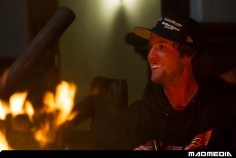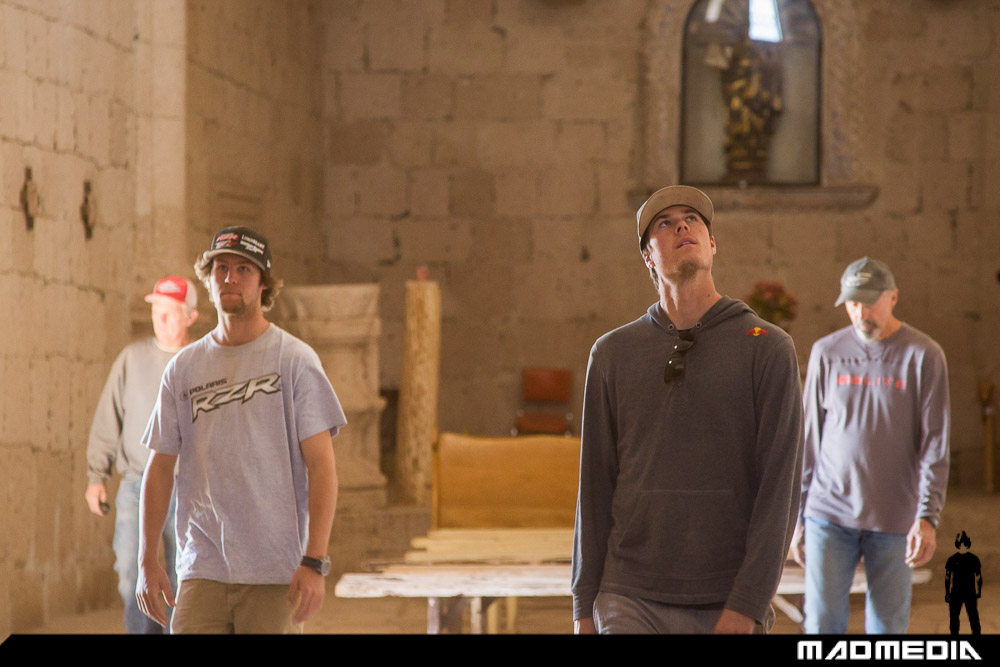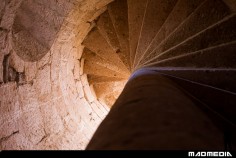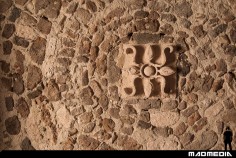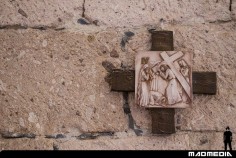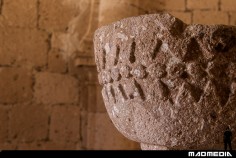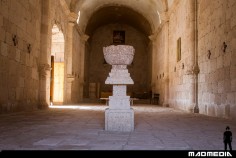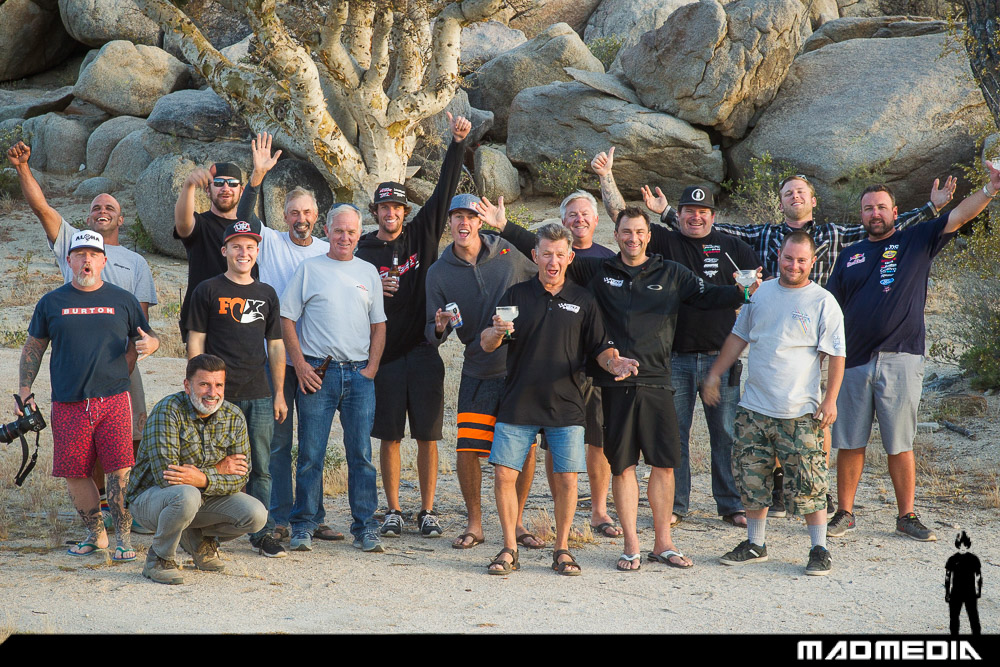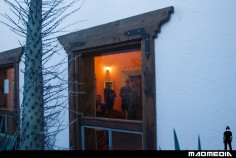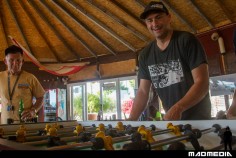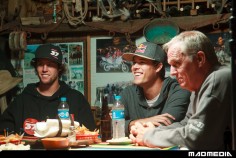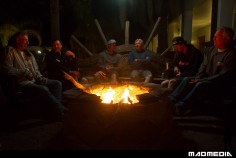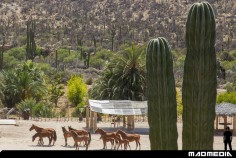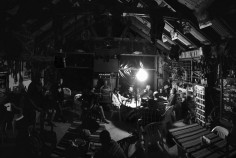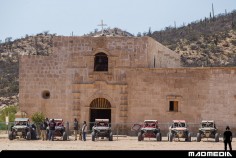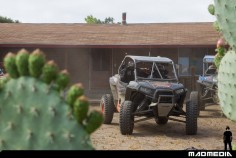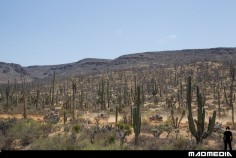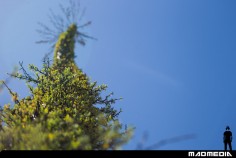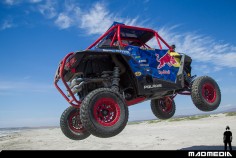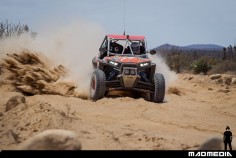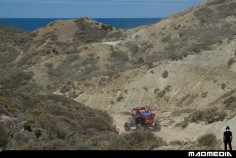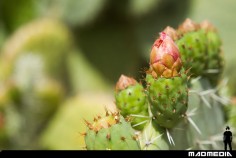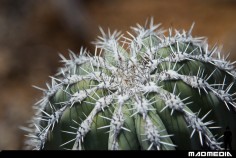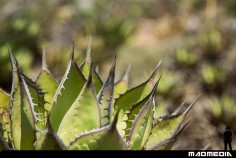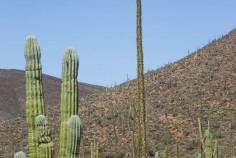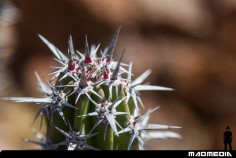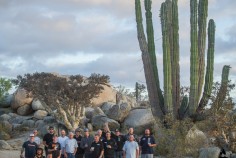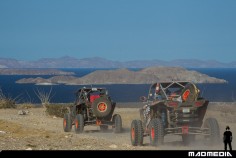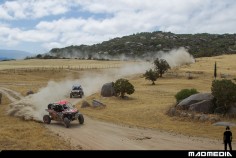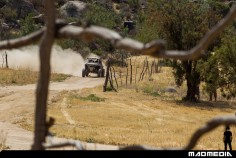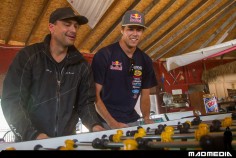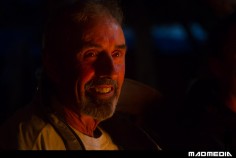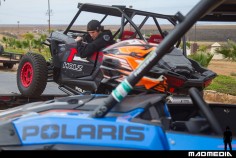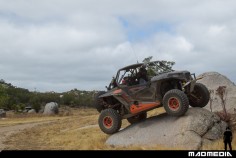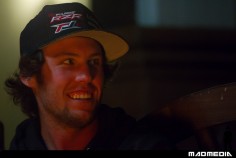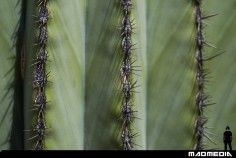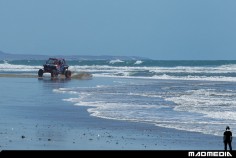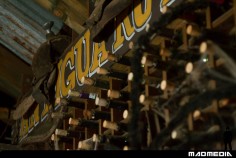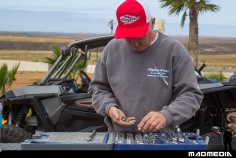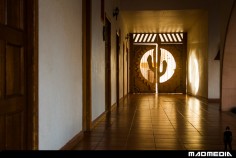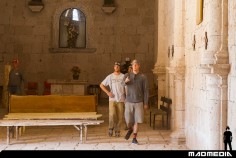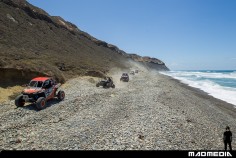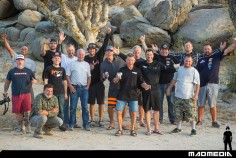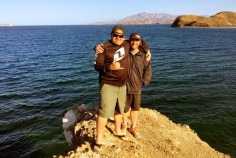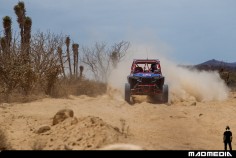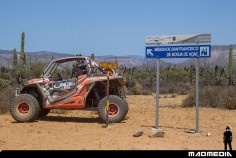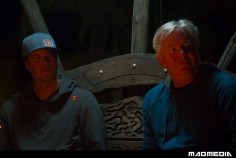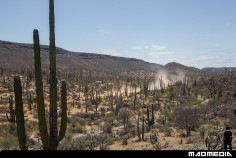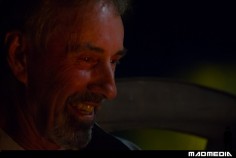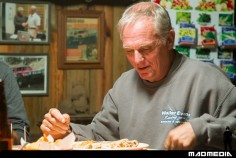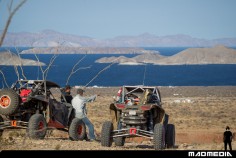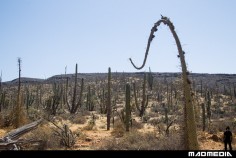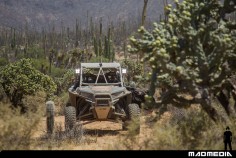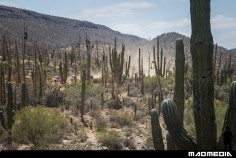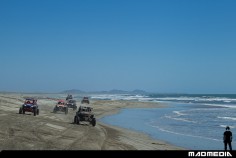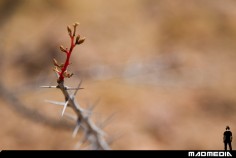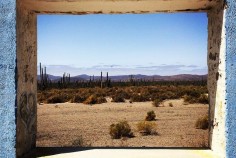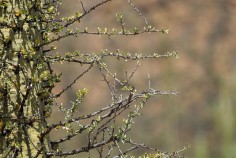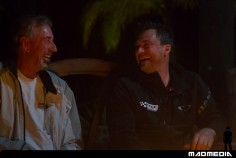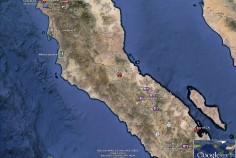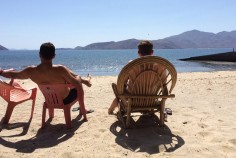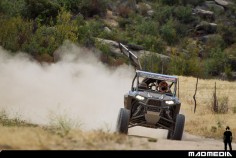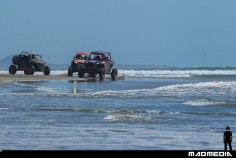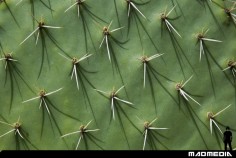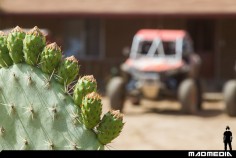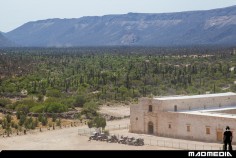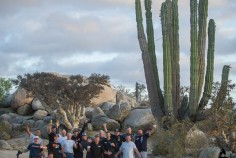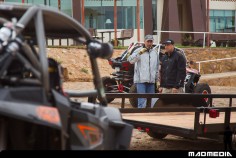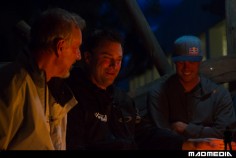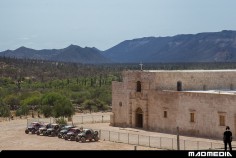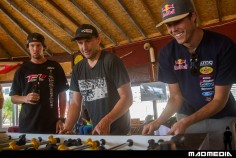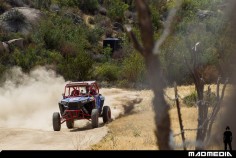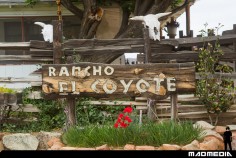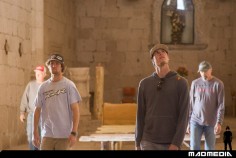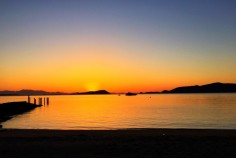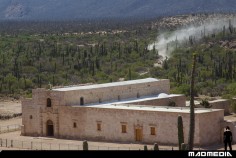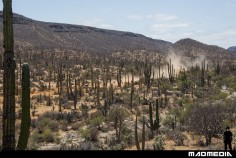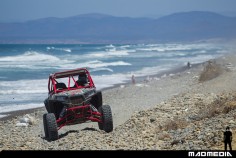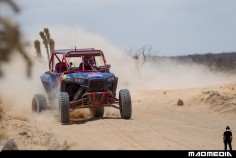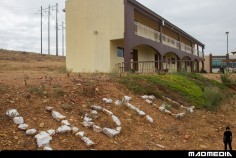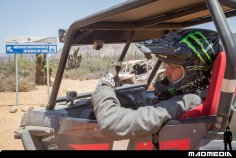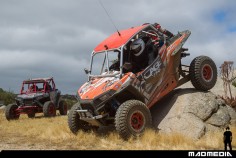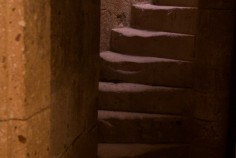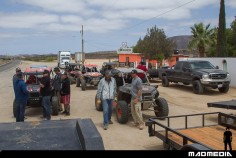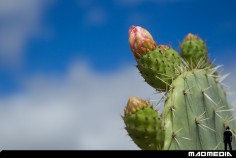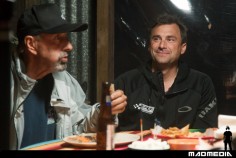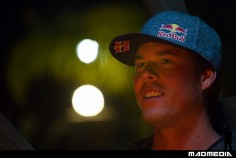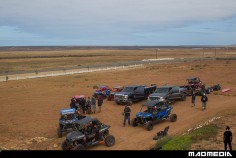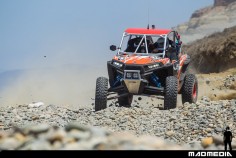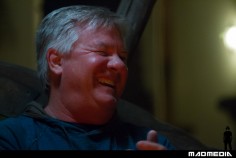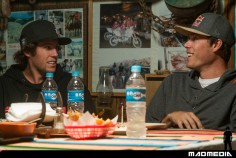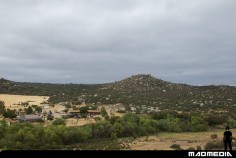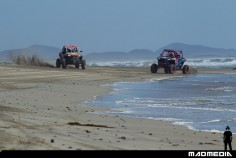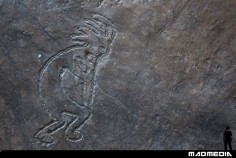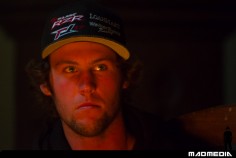The other day I figured out that I have been going to Baja for almost 30 years. The relationship started off rocky with short, wild trips to Tijuana. Let’s just say I was an ugly tourist kid doing things teenagers do in a town that encourages bad behavior. When I was introduced to the beaches and seafood of Rosarito, I clearly remember thinking, “Wow this is beautiful. The food is amazing. The people are amazing. And it’s right here in our back yard!” That was a time prior to Narco wars, where getting shaken down for twenty bucks was pretty much the worst thing that was going to happen.
Consequently, tourism was booming. It seemed every weekend there was something going on in Baja. The “Ah-ha” moment came when I went on a surf trip to K38 and realized Baja kept going. It’s massive untouched beauty jutted out into the pacific like a middle finger to the developing world exclaiming, “You can not tame me.” As I have traveled all over the world, I have come to appreciate Baja even more. It is a unique combination of beauty and harshness, of chaos and serenity. To truly appreciate it you must be an off-roader. If you merely experience Baja by pavement you are missing the most important parts.
Chad Ragland and I have been working on putting a RZR tour of Baja together for almost two years. Trying to coordinate schedules between three families has proven to be an exercise near futility. But the stars finally aligned and we were able to get Chad and Larry Ragland, RJ and Randy Anderson, and Steve and Bryce Menzies all together for a few days of fun and exploration in Baja.
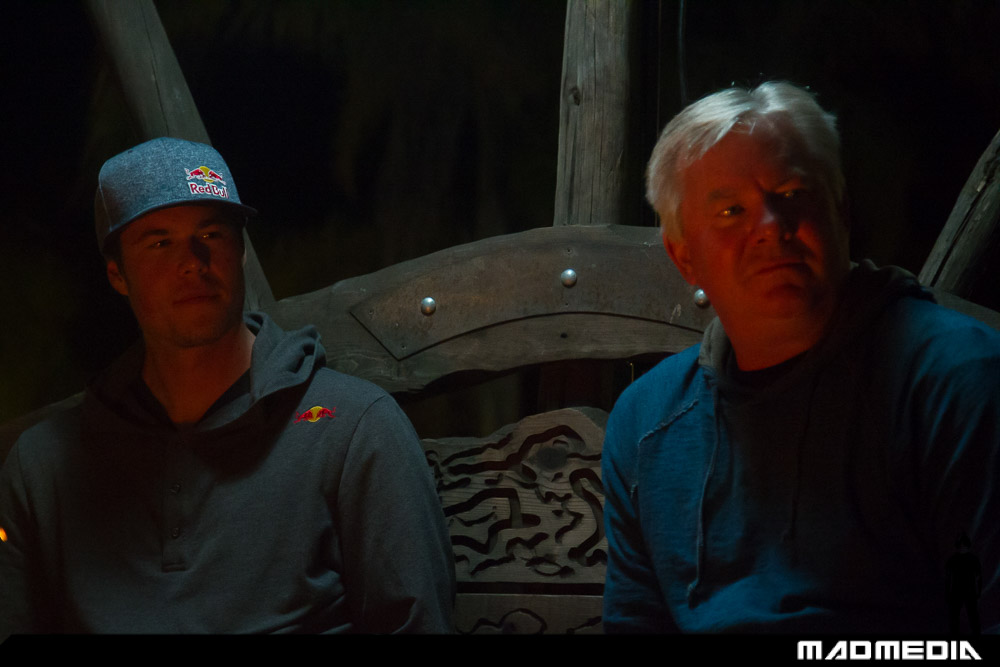
For those of you who don’t know, Bryce Menzies is a desert and short course champion. He has found success at young age, winning multiple championships and the Baja 500 three times. His father Steve is a successful businessman from Las Vegas and has been instrumental in building the highly successful Menzies Motorsports program with his son. He is as passionate about off-roading and racing as his son.
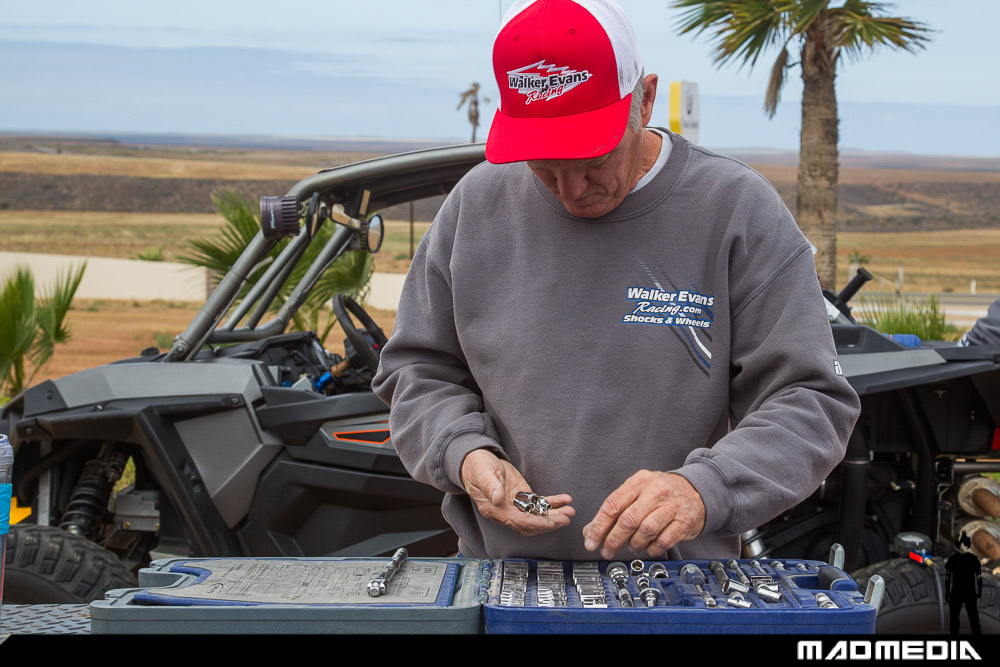
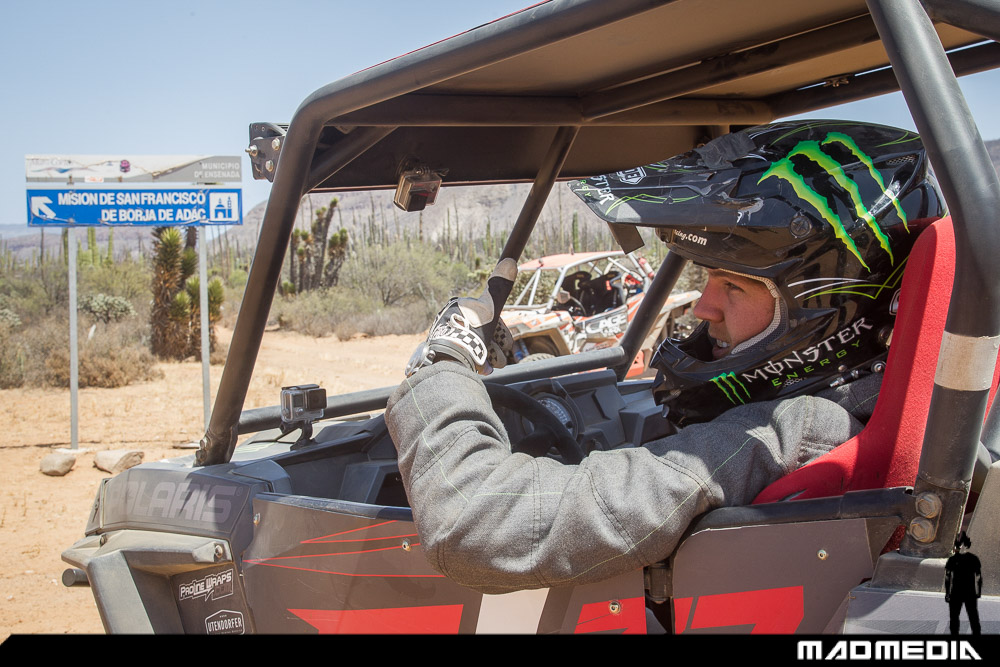
RJ Anderson is also a short course champion and star of the XP1K video series. He has just begun racing in the desert. He was raised by off-road luminary Randy Anderson, CEO of Walker Evans Enterprises. Randy was previously Walker Evans’ crew chief. He is one of the top suspension wizards in the world and is part of a small group of people who helped create the world of off-road racing as we know it today. Randy has personally designed the majority of shocks run on RZR’s to date.
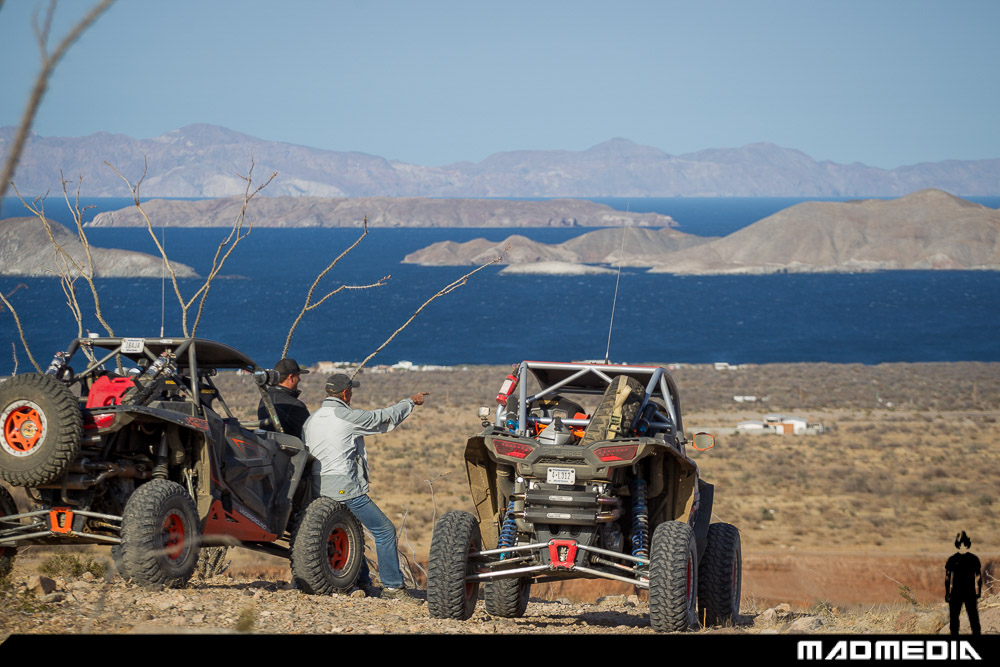
Five time Baja 1000 Champion Larry Ragland is a recent RZR convert. He has quickly logged over 6,000 off-road miles on his RZR while falling in love with the simplicity and function of the Polaris RZR platform. His son Chad also took to RZR’s, competing in races, then launching his company Cagerwrx, an aftermarket manufacturer of cages and performance parts for UTV’s. Chad continues to race all platforms of off-road as well and was the catalyst for putting this trip together. He loves to share his infectious passion for off-road with his friends and family.
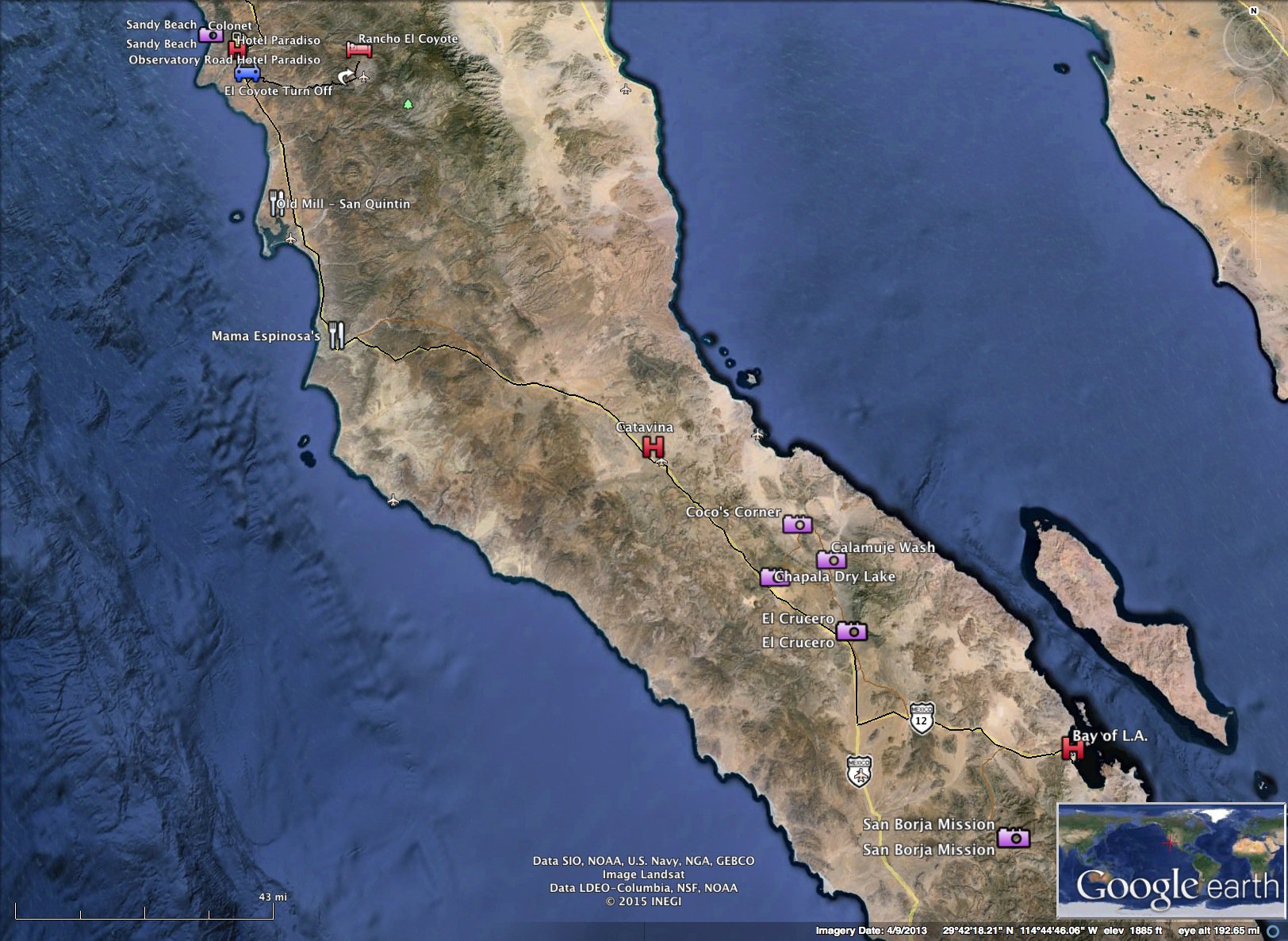
Many of the routes and locations we picked were places we have been driving by for years but never have had time to stop and check them out. Now that we have Google Earth, we constantly comb the magic peninsula for routes we have never been on.
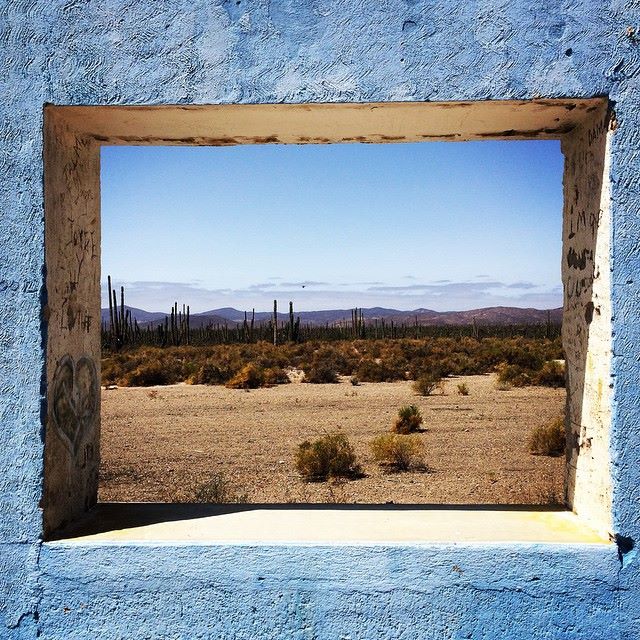
The purpose of this trip was not just to explore parts of Baja we had never seen on the super utilitarian Polaris RZR, but also to explore the father-son relationships that seem to thrive in off-road racing culture. We were there to capture all the fun and will be releasing the full video on father’s day June 21st.
As we drove past the border and dropped into Baja, we stopped for some shrimp tacos just south of Rosarito at Juniors. They have some of the best fried shrimp tacos in all of Baja. After the feast, the Raglands, Mad Media Crew, and chase crews headed south to Estero Beach to pick up the Menzies and the Andersons, who had opted to fly into Ensenada.
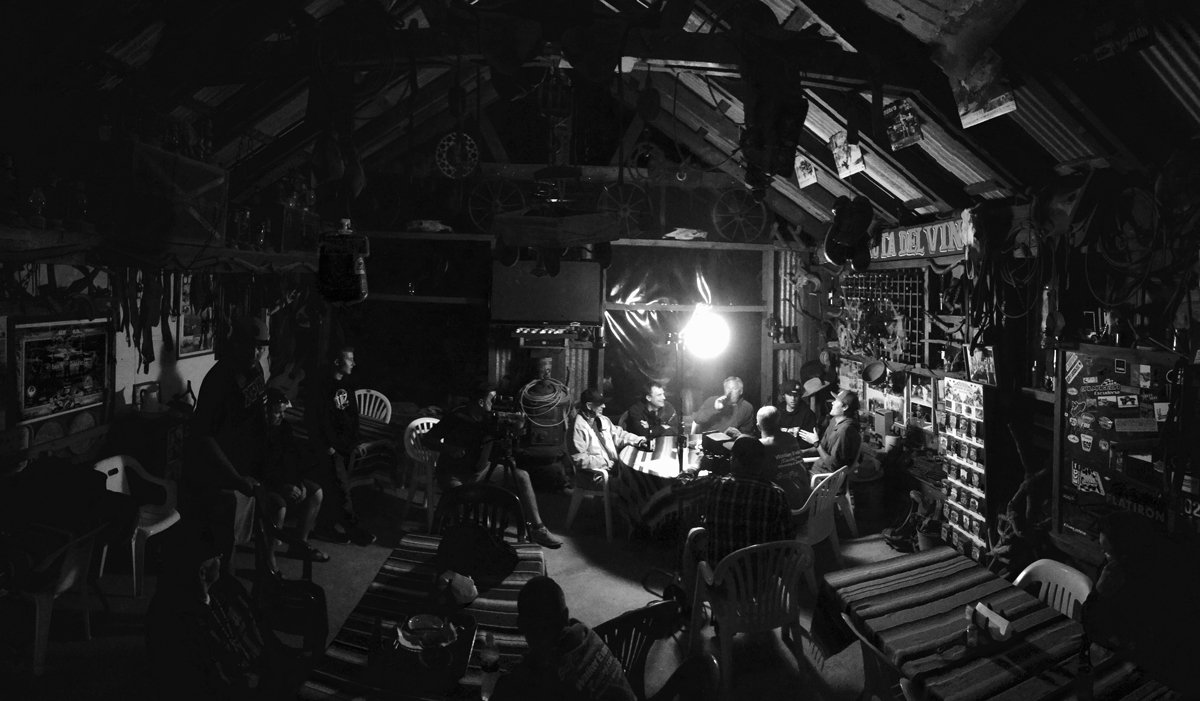
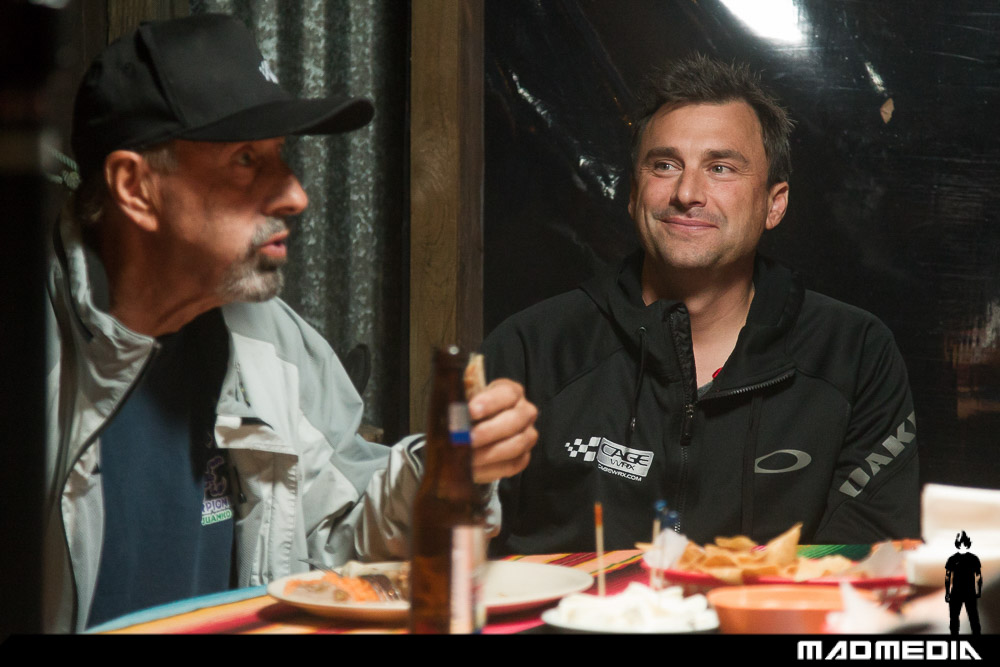
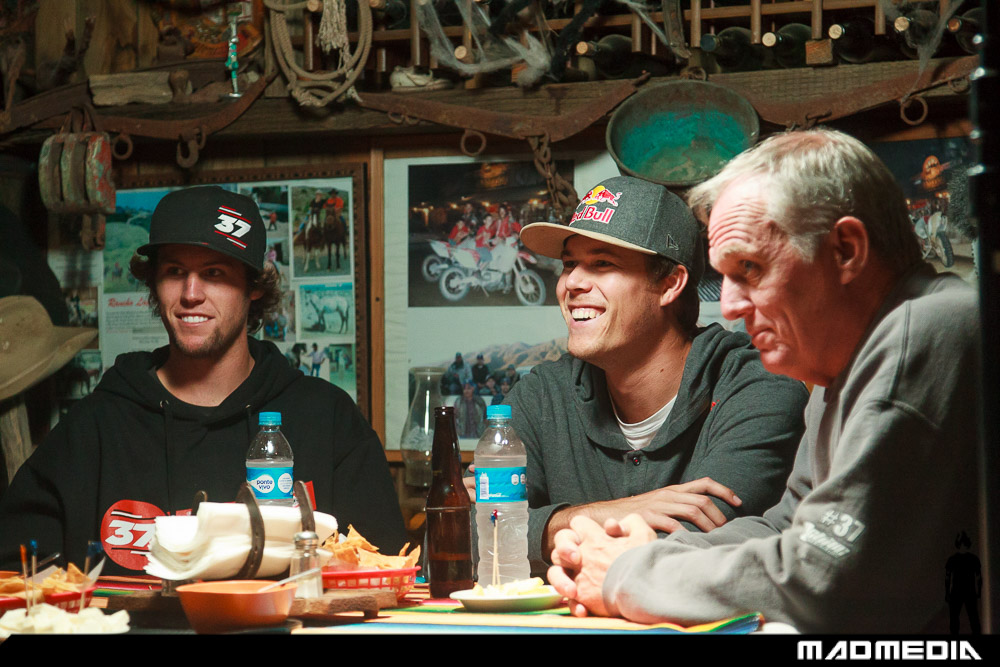
Our first stop was dinner at Acambaro in Urapan. What seemingly looks like a rundown truck stop is a quirky off-road history lesson. You’ll have to go in and look around at the combination of race and ranch paraphernalia hanging on the walls yourself. It’s like you stepped back in time. The food is simple. They always serve local cheese and if you’re lucky, they’ll have lamb. The handwash station is outside and the chopping board is an old tree stump just like an old school ranch.
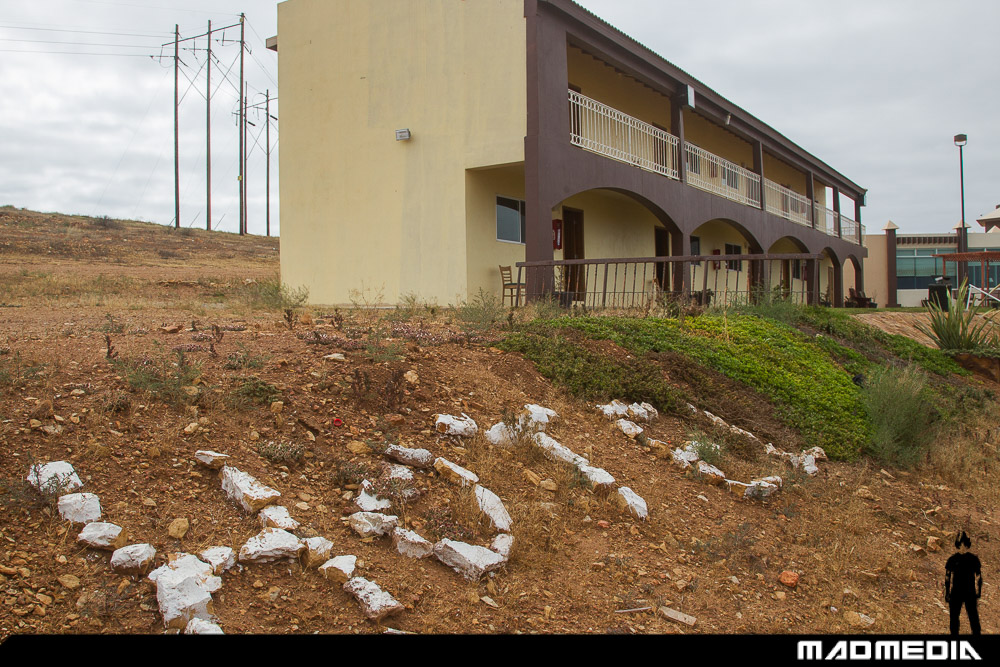
From Acambaro we drove straight to Colonet and stayed at Hotel Paraiso, a well-known hotel that is next to Baja 1000 race course. It’s always been weird to me that all these hotels in Baja are right on the road instead of set back away into the beauty of Baja, but then again I guess you wouldn’t see them from the road.
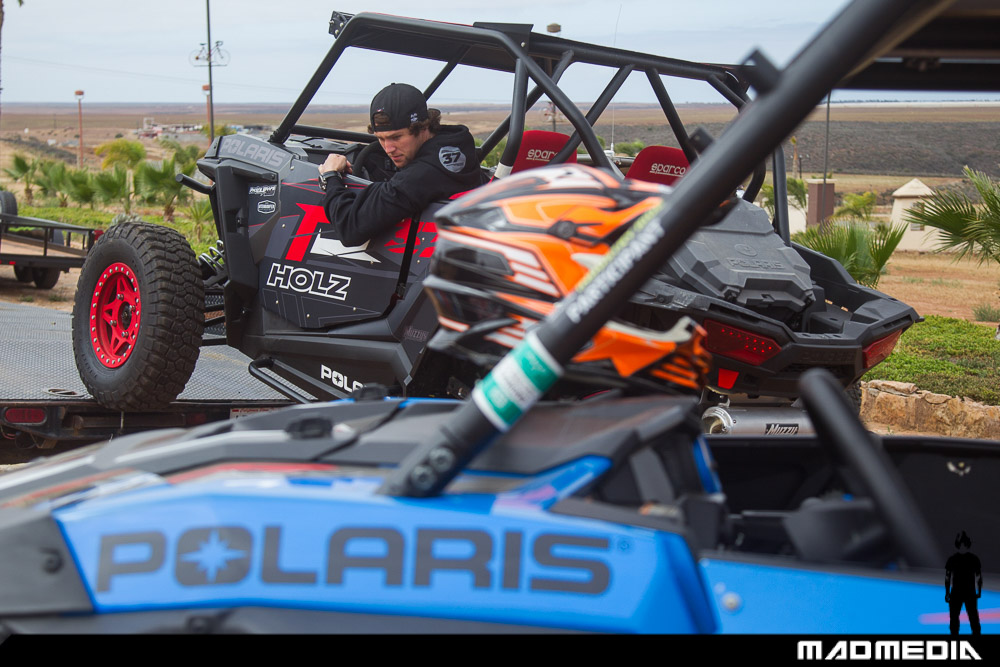
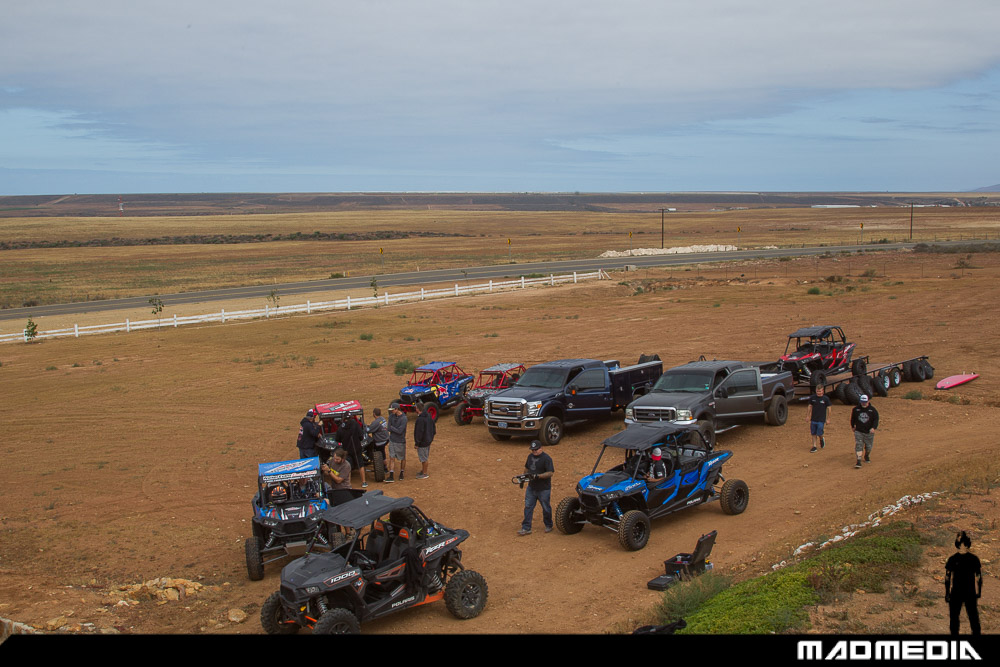
After having the ritualistic “Machaca con Huevos” for breakfast, we unloaded the RZR’s from the trailers and headed north of town to find a line we had always seen that leads to the beach. After blazing through a series of farm roads, we arrived at an open plateau that overlooked the tight, single track that led down to the secluded rock beach.
We all charged down to the beach and blasted through the natural rock whoops. After a few runs we stopped to take in the beauty of Baja and smell the saltwater air. This was our first spot and it was stunning! I knew this was going to be an epic trip. After exploring both ends of the beach we realized the canyon line we came down was the only way back up.
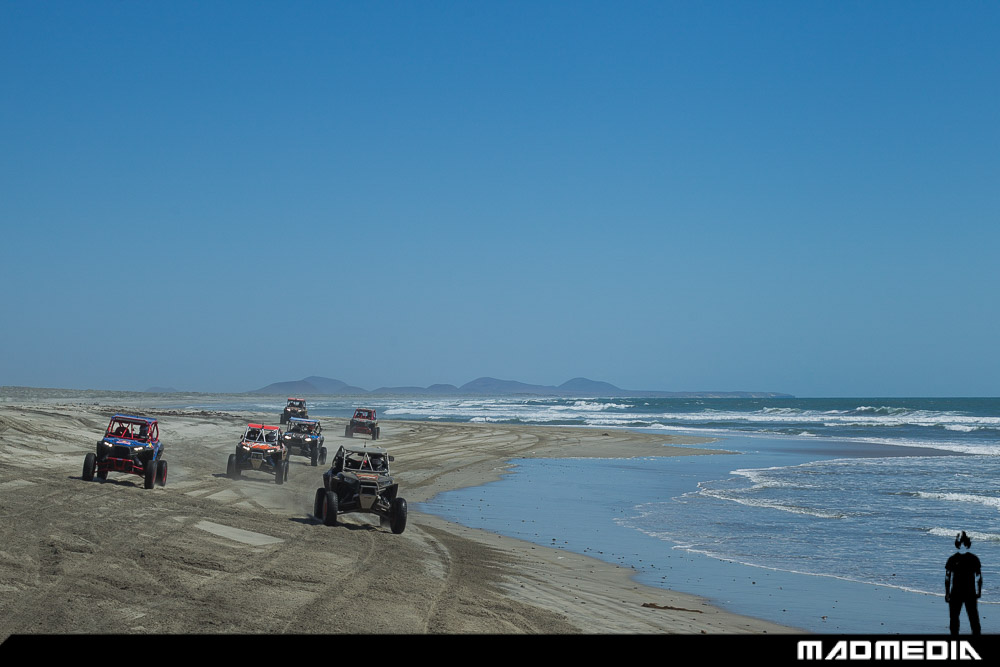
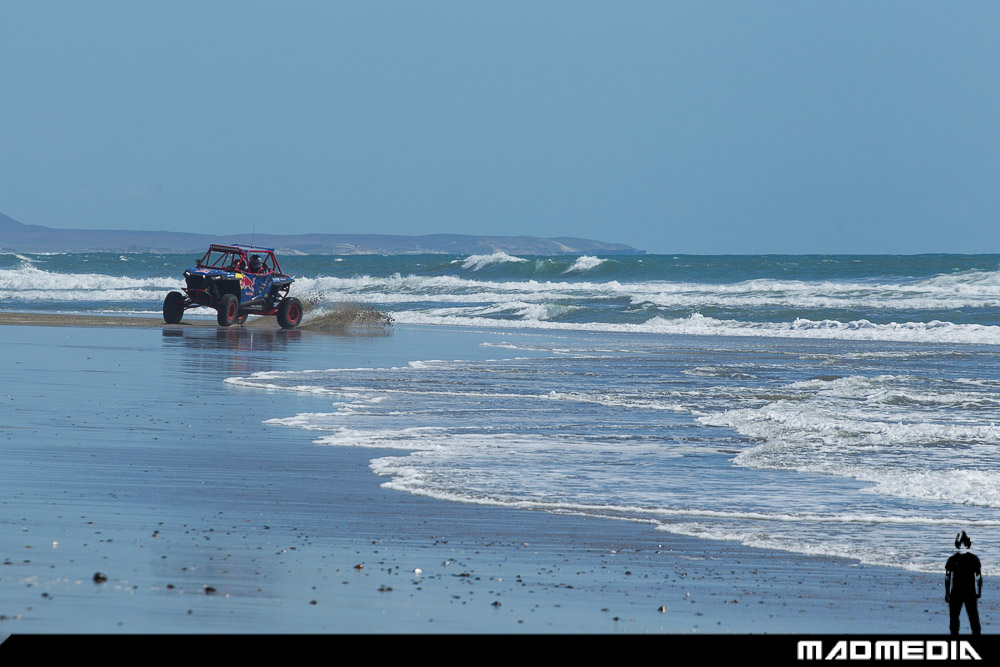
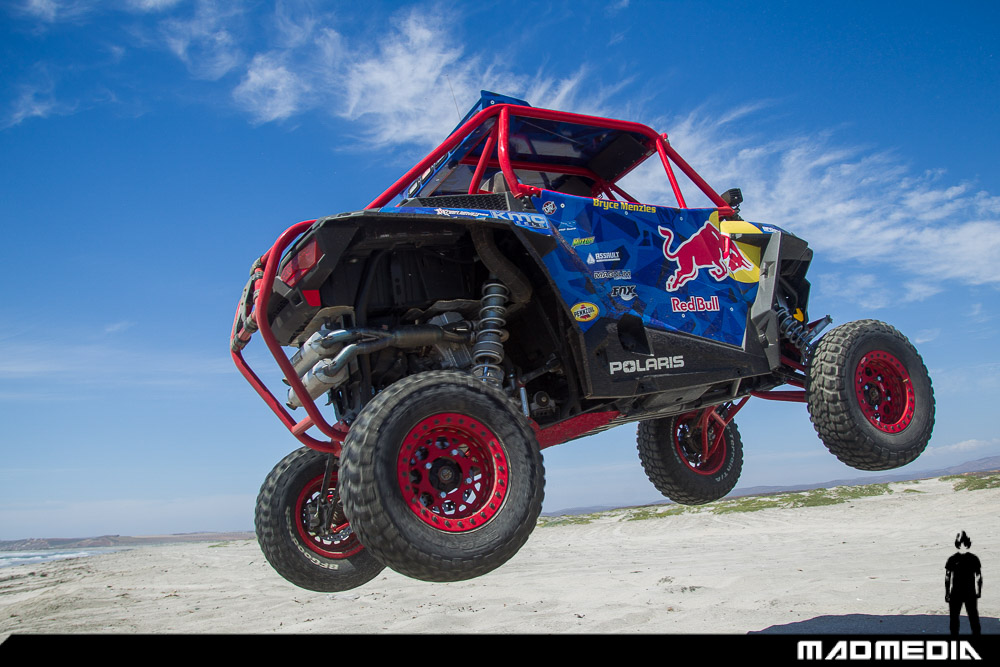
After ripping back up through the super tight and twisty canyon we headed south using part of Baja 1000 course that runs along the coast heading south towards San Quintin. It was hard to focus on the course because of the spectacular ocean views to our right. We turned inland for a bit then found a farm road back down to the beach and dove down sandy beaches for over twenty miles.
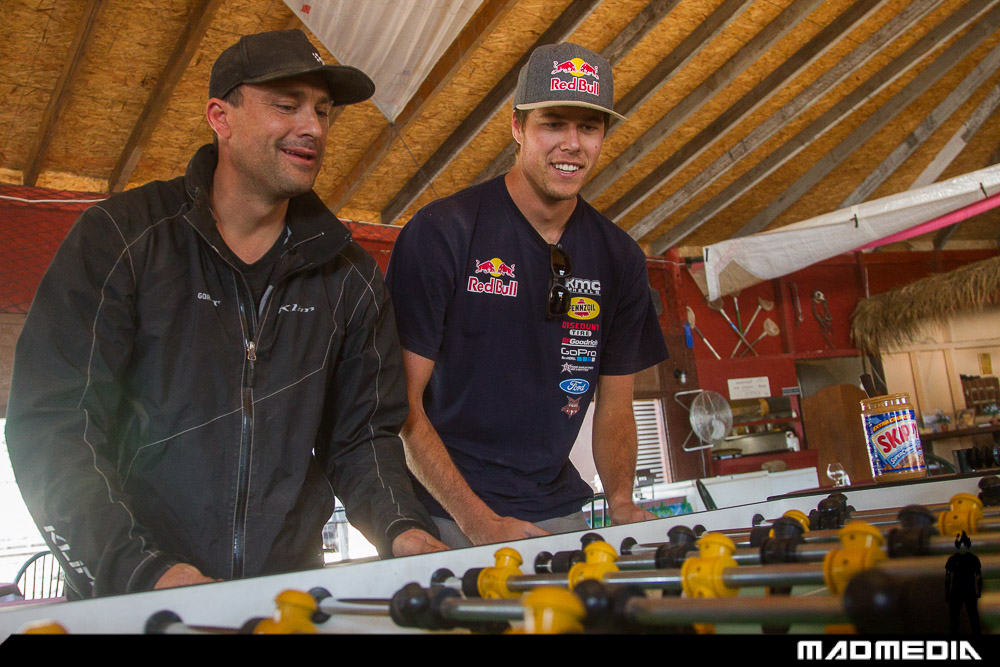
We stopped for late lunch at Old Mill and had some delicious shrimp and fish tacos. From Old Mill we drove pavement up to Rancho El Coyote via the Observatory road, one of the sketchiest paved roads in all of baja. The Menzies, Anderson’s and Ragland’s took off. I had to remind myself that I wasn’t a professional driver and to just cruise it. Tightening corners, off camber turns, and lots of elevation changes make the road challenging but there is little room for error, as one of my guys learned the hard way. He came over a crest and clipped the water guard laying our brand new 4 seat Polaris RZR on its side on the pavement. No one was hurt, but it was just a reminder that Baja can bite you at anytime. We got the car on a trailer and headed into Rancho El Coyote down the dirt turn off at the Meling Ranch sign.
Rancho El Coyote is a real working ranch set in the middle of the Sierra San Pedro de Martir mountain range they have about 7,000 head of cattle roaming free. They are completely self-sufficient, run on a combination of solar, wind, and generators. The people who run the ranch are super nice and the food is great. It’s as remote as you can get in Baja with race course running right next to the ranch. Rancho El Coyote is another place I have probably driven by over thirty times and never stopped. The whole crew sat around the campfire had a few beers and tequila and listened to war stories about previous races in Baja. It was great to hear the different generation of off-roaders talk about their experiences in Baja.
We woke up and had breakfast fixed our car and decided to trailer the cars to Catavina so we didn’t need to rush on the next leg of the trip. Just after you turn at El Rosario there is an outstanding taco stand on the left with great carne asada and adoba tacos. Mama Espinoza’s is also a must stop. Their lobster burritos are like crack.
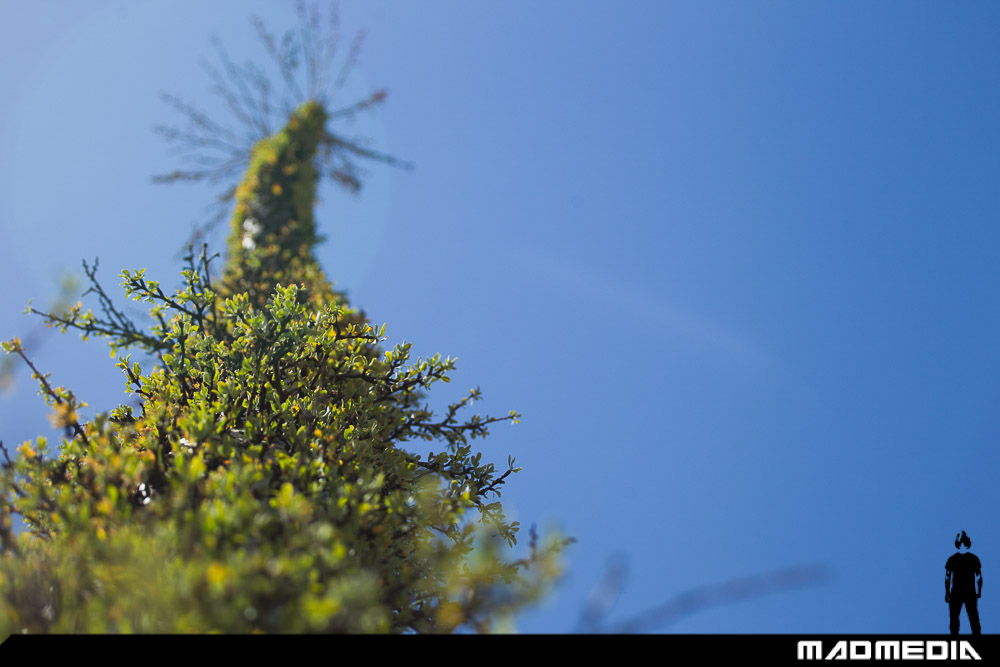
Just a few miles south of El Rosario is an invisible line marked by the first of the Cirio, or Boojum, Trees. This is where the real beauty of Baja begins and where you have to do work as an off-roader to experience the unspoiled terrain. Boojum trees look like a plant that Dr. Suess designed, yet they seemingly make perfect sense mixed in with the giant Cardón cactus that paints Baja. The name comes from an appropriate reference from Lewis Carroll’s poem, “The Hunting of the Snark”. This one section of Baja is the only place the Boojum trees grow in such abundance in the entire world, as if to signal to travelers that they have found someplace special.
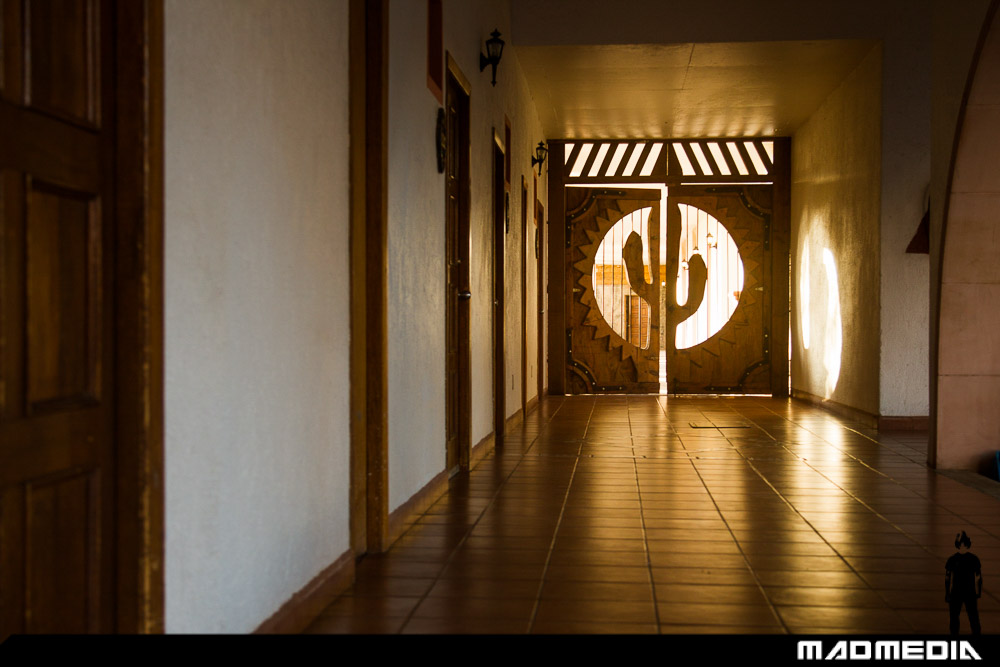
We stayed at the Hotel Mision Catavina. There are a few of these styles of hotels throughout Baja that I love staying at. Relaxed and authentic, the interiors have an “Old Baja” feel.
After some drinks around a campfire out in back of the hotel, we had a great dinner at the restaurant in the hotel and tuned in.
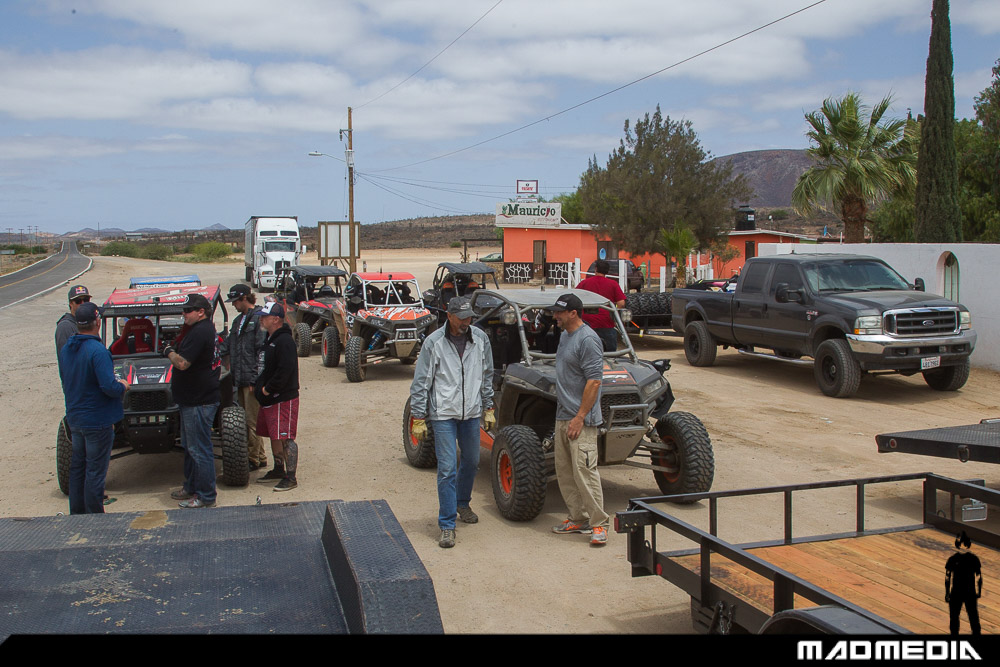
We all got up the next morning and had a quick breakfast and headed down to Punta Prieta to start our ride for the day.
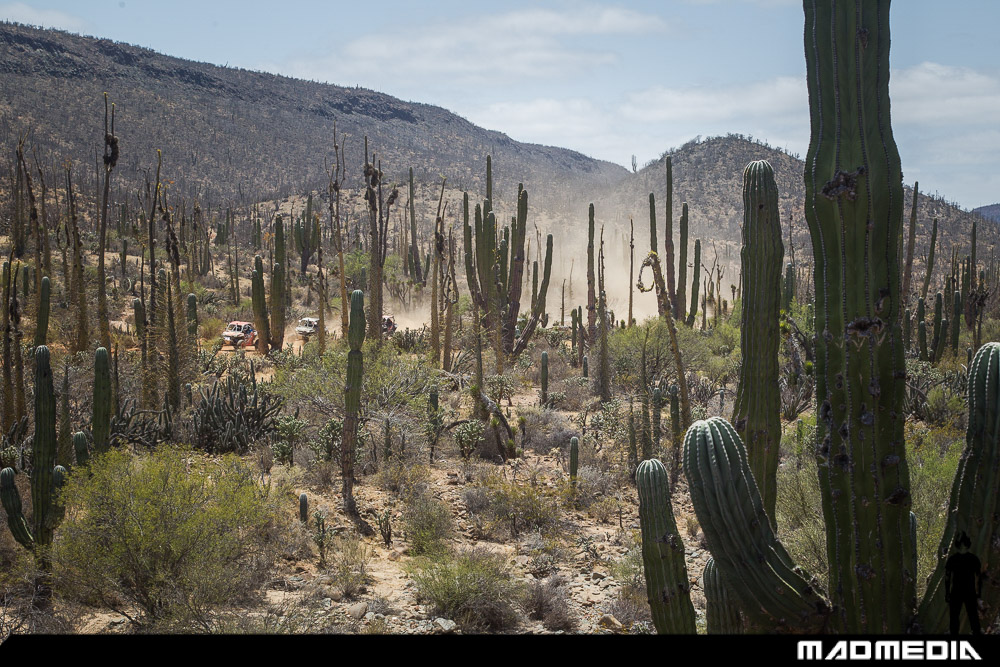
After unloading the RZR’s from the trailers, we gassed up and headed out. Less than 10 miles into the course we were surrounded by a forest of Boojum trees and cacti in a stunning landscape. After a few hours of driving through varied terrain including a few small silt beds, we arrived at San Borja Mission.
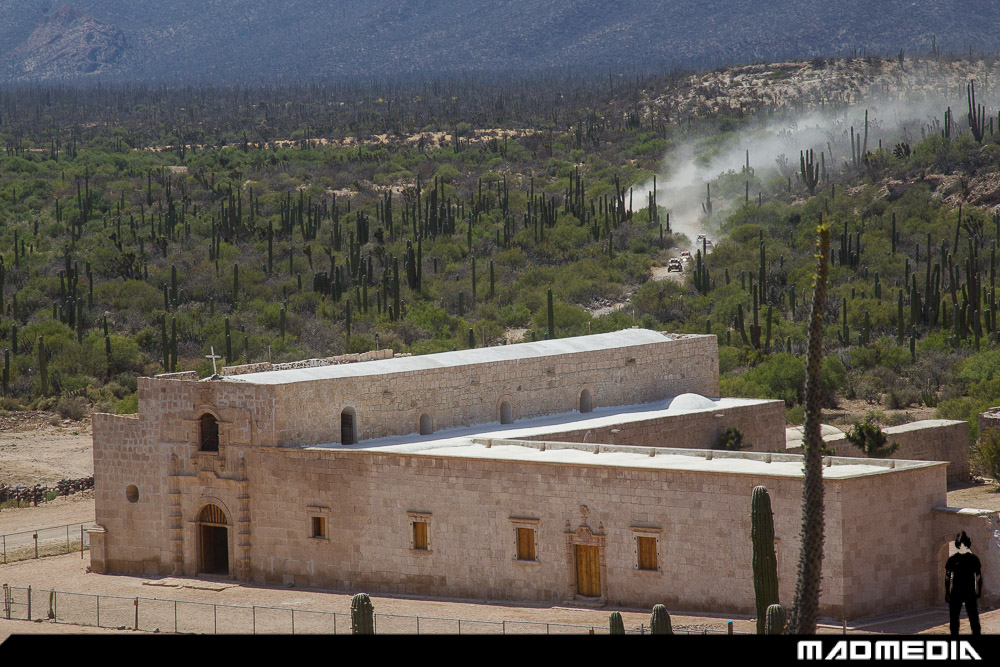
Misión San Francisco Borja was founded in 1762 by Jesuit missionaries as part of the El Camino Real (Spanish for The Royal Road, also known as The King’s Highway). The Mission not only established religious doctrine but introduced european livestock, fruits, vegetables, and industry into the region changing mexico forever. Many streets throughout California still follow or run parallel to this historic route and bear the “El Camino Real” name. Eventually, a network of settlements were established, each of which was no more than a long day’s ride by horse or boat (or three days on foot) from another. It was all part of the Spanish government’s plan to conquer new land, reap the riches and convert the natives into tax paying contributors to the empire.
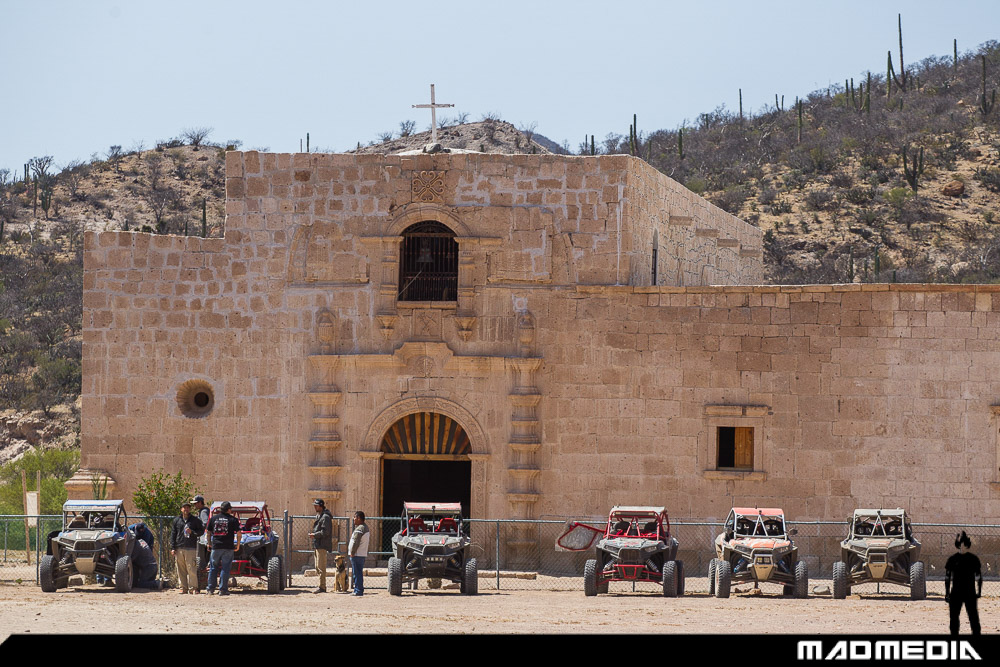
A newer built San Borja Mission lies in front of the old ruins. The newer Mission is being restored by hand by the family that own the ranch. They still climb the nearby mountain and hand cut large blocks of cantera stone and carry it down on a stretcher one block at a time.
Mission caretaker José Ángel Gerardo Monteón Jr. gave us the tour of the Mission as well as the entire grounds, which still have a variety fruit trees and the original grape vines brought by Jesuit missionaries. These grapes are likely the first introduced to North America pre-dating famed wine growing areas like Napa. The mission is also known for its natural hot springs. Because of the rough road leading to San Borja, the mission receives an average of three visitors a month. They receive no government or outside support, so a little donation goes a long way to help keep this part of history alive.
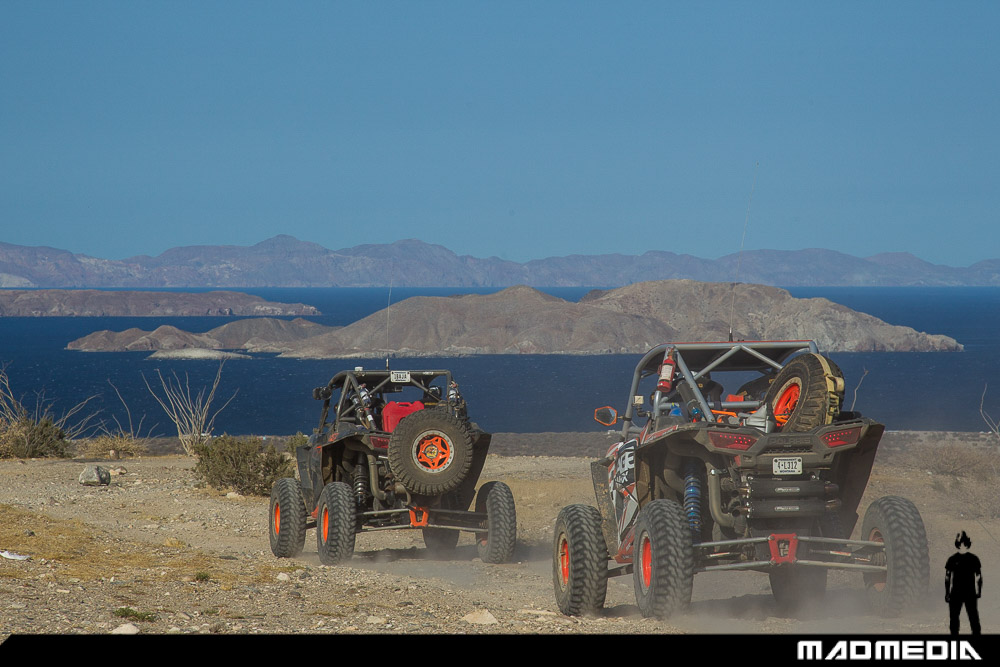
After the day’s history lesson, we headed East towards Bay of LA, our final destination. The course straightened out a bit allowing us to pick up the pace until we hit the pavement. Once on the pavement we cruised slowly over a hill until the stunning view of the Sea of Cortez was revealed. We stopped to take some pictures and headed into town to Guillermo’s Hotel.
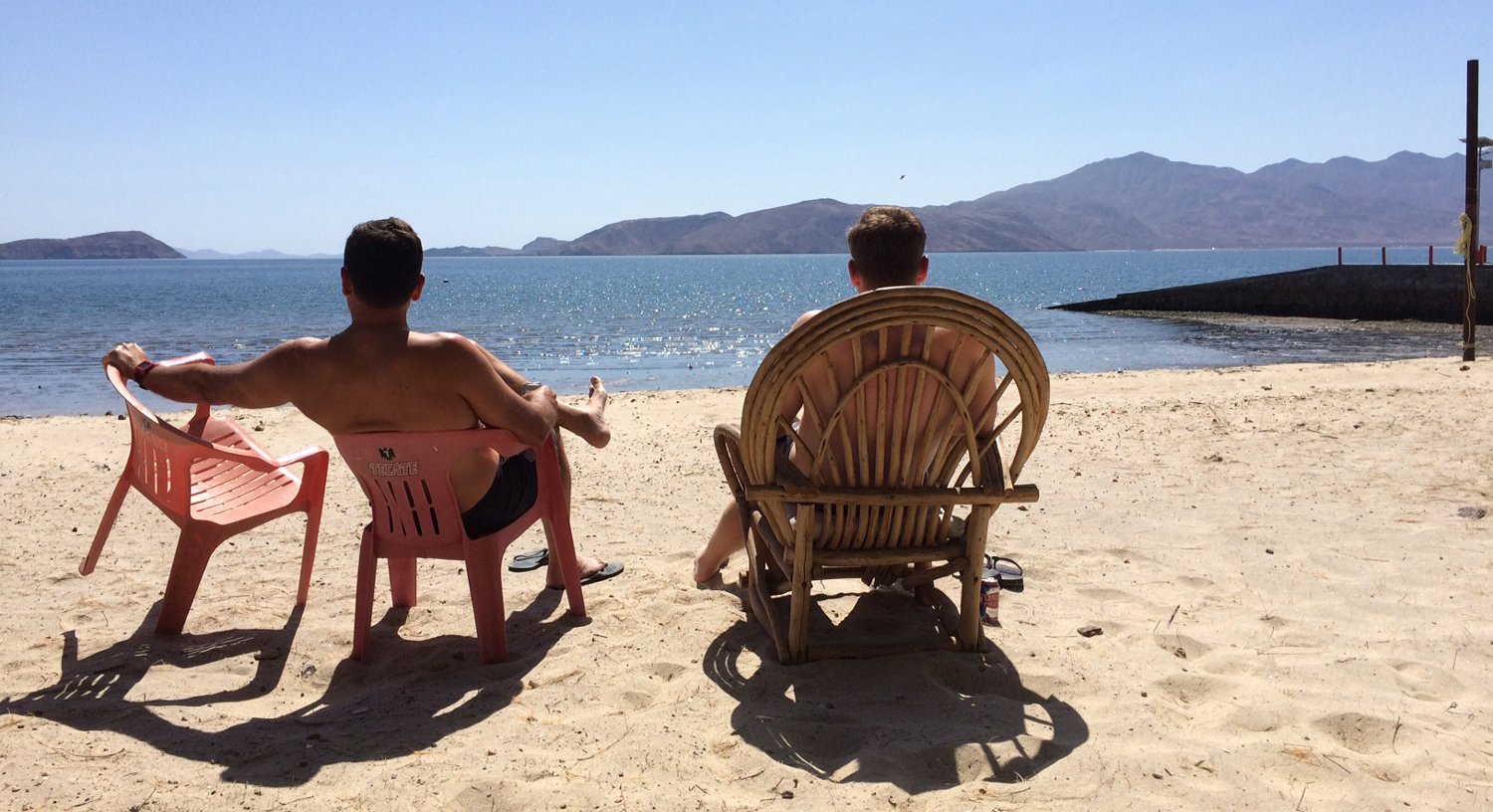
Guillermo’s lies beachfront and has great food, clean rooms and warm showers. Guillermo is also an off-road racer so we always enjoy swapping stories with him. The Anderson’s and the Menzies had to get on a plane and head home to meet other obligations, so we sent them off with big smiles on their faces.
The next morning we woke up to super windy conditions which killed our fishing plans so we decided to have breakfast, ditch the cameras and go exploring. We headed south of town and found the “Bahia 200” race course, a local race that happens every year in March. We spent hours running the tight technical track and exploring random washes and trails. This is the fun of not having an agenda – you see something and just turn and go check it out.
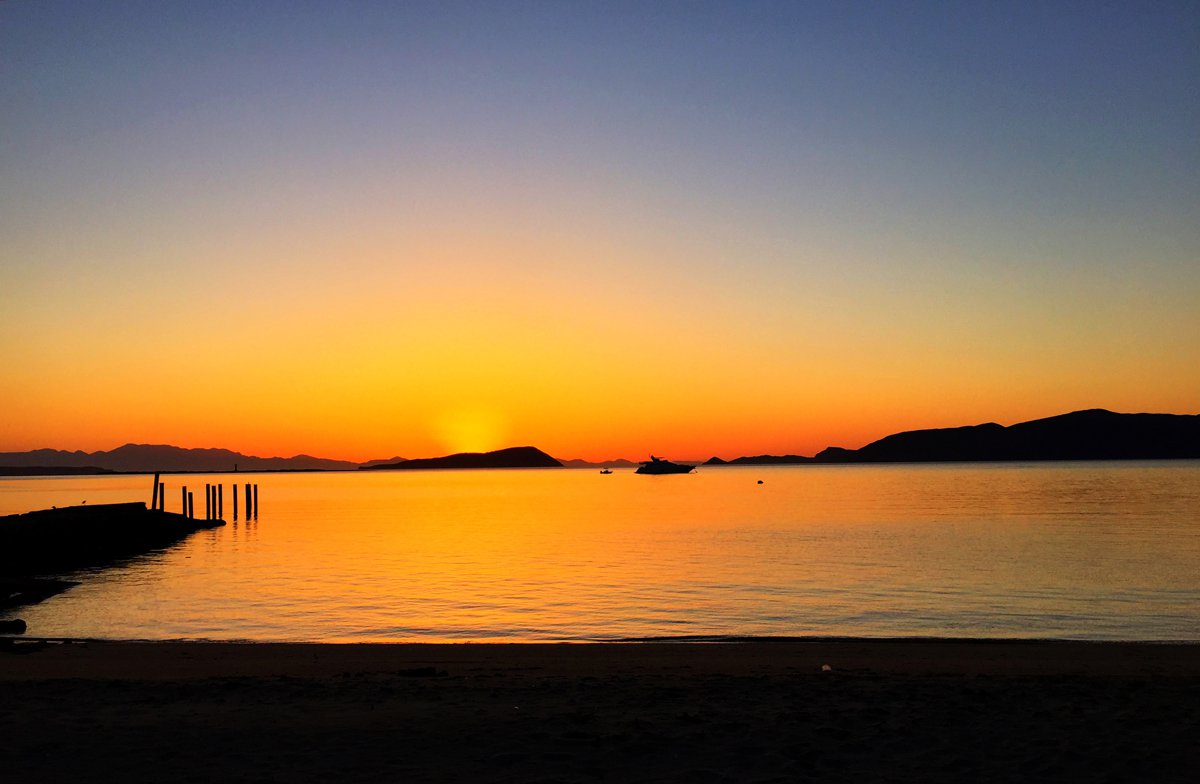
We headed back to town for some fish and shrimp tacos then headed to the North side of the bay. First, we drove out to the cape that the lighthouse was on. We stopped for bit to explore the beach filled with crabs and blow fish and random seashells. Then we headed North on a the beach until we came to the turtle sanctuary where we turned back up onto a coastal dirt road and kept heading north exploring beaches until we found a giant canyon wash. We rode up the canyon until it looped back to the coastal road and drove drove back to Guillermo’s for another delicious dinner.
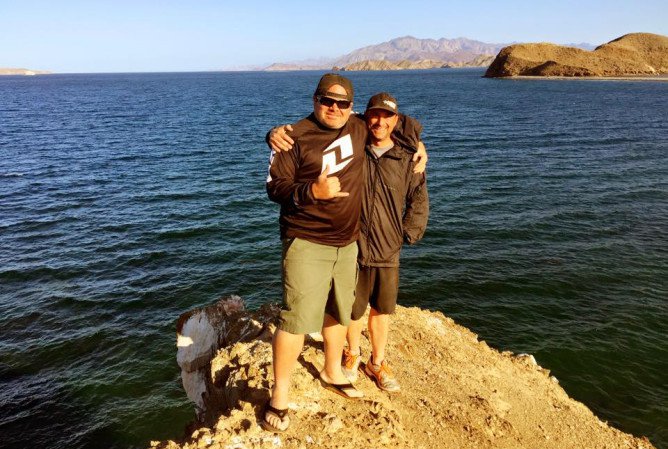
I can honestly say that finding new lines with Larry and Chad Ragland was the most fun I have had in Baja ever. If your going to go on an adventure, surrounding yourself with great people is a must.
One of the best parts about being an off-roader is you get to see and experience things most people on the planet will never do. Off-roading teaches you to constantly push your comfort zone and work for the experience. Once you gain this mindset the entire planet becomes your playground.
You can off-road in whatever platform you chose, Jeep, pre-runner, Raptor, but nothing offers the ease and versatility of the Polaris RZR XP1000. Whatever vehicle you choose slow down, take a look around, drive up that dirt road, have a taco, and enjoy Baja with your friends, because life is not a race to the end, it’s a journey to be thoroughly enjoyed.
